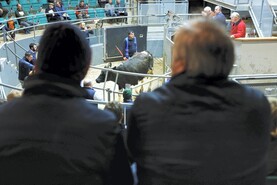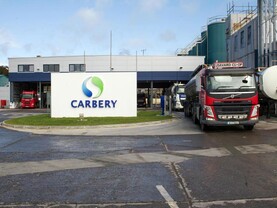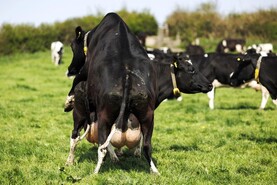I had a call from a very frustrated dairy farmer from west Cork on Tuesday. I believe he is not alone in his predicament. The young farmer (35 years old) has just taken over from his parents in the last number of years and is doing what he can to make his business survive.
For the last number of years, the business has produced 400,000 litres of milk from a grazing platform of 50 acres (20ha).
The farm is landlocked and despite his best efforts to talk to those around him, there is nothing available on the bounds ditch to increase the size of the grazing platform. He has 55 acres leased away from the farm which is used for replacement heifers and silage.
Borrowings
The other significant piece of information is that the farm is relatively heavily borrowed as EU nitrate regulations forced large investments in the farmyard for slurry storage and winter housing.
In total, to bring the farm up to speed, the farmer said over €300,000 has been spent on concrete and housing over the last number of years. While one-third of this has been paid back over the last four years, with low prices predicted for 2015 it looks like it could be a while before any further repayments are made. Despite milk quotas disappearing, increasing output profitably will not be possible from current land structure.
Cows are already producing 450kg of milk solids per cow and, as already mentioned, the farm is producing 20,000 litres of milk per grazing hectare. The farmer has milked up to 100 cows on the 50-acre grazing platform (5LU/ha) but for the last number of years he has settled at milking 70 cows (3.5LU/ha) and said he is making as much money from 70 cows as he was with the 100 cows.
Bottom line, this young farmer and his parents need to get some return from a business to allow them live, continue to spend, repay loans and invest in the farm. Given the current business structure, as outlined above, it’s not going to be possible.
At this stage, having explored all possible opportunities in the locality, the young farmer is willing to move his farming business to another part of the country. Ideally he is looking to move to a farm with a larger grazing platform that would allow him milk 150 cows profitably and maybe lease the home farm or use it for rearing replacement heifers, etc.
Given his financial position and commitments, he hasn’t the capacity to invest a huge amount of money in capital expenditure on this potentially new, bigger farm. However, he is willing to bring his cows and replacement stock to the new farm. He wants to milk the cows himself and get someone locally in west Cork to look after his home farm or, if its leased out, it will look after itself.
What has he done?
The farmer has made contact with Austin Finn from Macra’s land mobility service and he has tried to investigate some possibilities, but all to no avail to date.
The young farmer said: “Some landowners are unwilling or cannot fund capital expenditure necessary to milk 150 cows on a larger grazing block. Some landowners are not willing to allow me, the new share-milker, work in and control the business.”
Ideally he is looking for a partner who is willing to go 50/50: the landowner provides the land and gets half the milk cheque (or the agreed division) and the share-milker brings the cows and the labour. Both parties get separate milk cheques. From 1 April 2015, this type of arrangement will be possible in Ireland as quotas are dismantled.
To be fair, you can understand the landowner’s position to some extent in handing over control to someone he/she doesn’t know anything about, but the share-milking arrangement must take out the ambiguity and make it crystal clear who owns what and when and what happens if things are not going well.
What is he willing to do?
The young farmer I spoke to is willing to move his business from west Cork to wherever the opportunity lies. Initially he was hoping to partner up with a farm somewhere else in Cork, but now he is willing to move to any part of Ireland.
He is willing to sign up to a minimum five-year agreement with the landowner and if it continues for longer and both parties are happy, he is willing to do that also.
He is looking for a business that can milk 150 cows, allowing him capacity to produce a good return for his partner and allow him pay back his commitments.
Land mobility
The Macra land mobility service managed by Austin Finn is looking at partnering up young farmers like the one described above and landowners looking to step back from the day-to-day activity of milking.
Austin said so far he has more landowners than young people knocking on his door. The three areas he sees as key reasons why young farmers are not looking for opportunities are: the risk factor involved; the fact that many have family commitments and can’t move location easily; and a lack of confidence in going through with the new arrangement. Austin said all these need to be addressed and a good share-farming agreement with support to both parties at the start is essential. A new demonstration programme with pilot farms is being developed for 2015. Tom Curran from Teagasc is currently drafting up a prototype share agreement which will be available in the new year.
Want to meet the young farmer?
If you want or are willing to meet/talk to this young farmer, make contact with me for more information.






 This is a subscriber-only article
This is a subscriber-only article









SHARING OPTIONS: